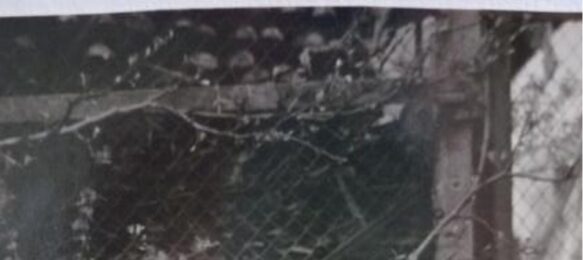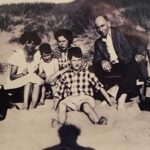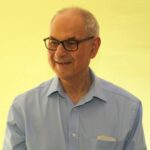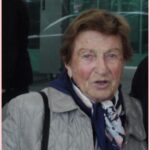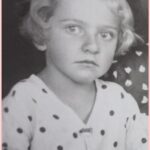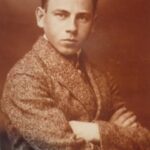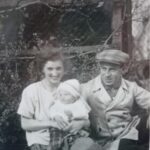Anton Hundsdorfer 1902 – 1982
Sonja Hundsdorfer 1927 –
Presented by Ernie Hunter [born Hundsdorfer]
Ernie Hunter tells the story of his father, Anton Hundsdorfer, sister, Sonja, and his non-Jewish German family. They were victims of Nazi Persecution because they were communists and political opponents of Hitler. The story tells how Germans who opposed Hitler suffered terror, imprisonment, interrogation, torture, forced labour and murder.
Anton, born in Bavaria, Germany, in 1902, was brought up in his step-father’s home in Bohdasice in the German-speaking part of what became Czechoslovakia. Anton did not get on with his step-father and, in 1918, ran away.
Anton arrived in Munich after Germany lost World War 1 at the time when a short-lived Communist Bavarian Republic was being formed. The ideals of communism and democracy - where everybody had a voice and equal rights - made a lifelong impression on Anton. Anton felt the crushing of the Republic by right wing forces meant democracy was under threat. He became an active member of the KPD [Kommunistische Partei Deutschland].
Anton married Klara Holy, and they had a daughter, Sonja. Following Klara’s tragic death in 1928, Anton and Sonja lived with Klara’s parents. Anton delivered anti-Nazi leaflets throughout Bavaria putting him on a Nazi enemy list.
When Hitler took control of Germany in 1933, Anton, as a political opponent, had to flee for his life, leaving his daughter behind. He reached the UK as a refugee in 1939. Sonja was brought up, in Germany, as an orphan. Meanwhile her uncles were subject to imprisonment, torture and murder in Dachau concentration camp. Miraculously, within days of the end of World War 2 in Europe, Anton managed to make contact with his daughter.
A lesson for today drawn from the story is the importance of free speech and democracy in preventing persecutions/genocides.
The story is considered suitable for older teenagers [Year 10/11 upwards] and adults.
Ernie Hunter is the son of Anton Hundsdorfer.
As a volunteer educator he has delivered a variety of Holocaust Education Programmes in the UK as well as giving talks, in German, at the Museum of Christians and Jews in Laupheim, Germany, and talking to schoolchildren in Baden-Württemberg. He feels that stories of Nazi persecution of non-Jews are insufficiently known and must be kept alive so that younger generations can learn about this Nazi Persecution so that lessons can be learnt from it.
"The presentation captured the interest of all the learners from the beginning. The Welsh connection added to the interest." Janice Owen, Head of History, Ysgol Y Creuddyn


